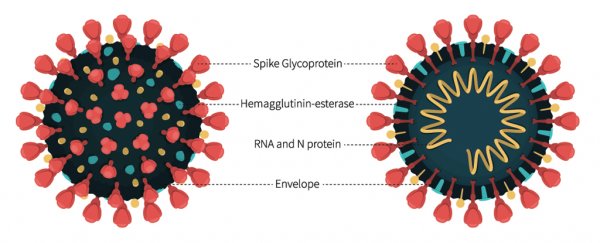Two cases of 'vaccine breakthrough' infections have been reported in a new study, confirming scientists' concerns that some variants can evade the mRNA vaccines.
However, the vaccinations were never expected to block 100 percent of infections, and these results in no way undermine the vaccination effort. In fact, they make it even more urgent.
"Our observations underscore the importance of the ongoing race between immunization and the natural selection of potential viral escape mutants," the researchers from Rockefeller University, led by biochemist Ezgi Hacisuleyman, write in their paper.
Two women who had received their second vaccination doses – one with the Pfizer shot and the other being the Moderna vaccine – still went on to develop COVID-19.
The good news is that the women only had mild cases of the disease, so it is possible the vaccines may still have helped them. But it is yet not known if fully vaccinated people can get severe coronavirus.
The study monitored staff and students at Rockefeller University in the US, resulting in samples representing more than 400 vaccinated employees and nearly 1,500 unvaccinated volunteers. The researchers have been sampling their saliva weekly since autumn.
The two fully vaccinated women who contracted the virus had no risk factors for severe COVID-19. Patient 2, a 65-year-old woman, tested positive for the virus 36 days after receiving the second vaccine dose.
But for Patient 1, she tested positive for the infection only 19 days after the second dose, so the researchers say they can't rule out the possibility that she was infected before receiving the second dose.
"We conclude that it is very likely that both patients had effective immune responses to the vaccines," the researchers write. "Our observations support the conclusion that we have characterized bona fide examples of vaccine breakthrough manifesting as clinical symptoms."
Taking a look at the genetic sequences of the variants Hacisuleyman and team found that Patient 1's strain contained mutations from both the UK B.1.1.7 strain and B.1.526 from New York - possibly a result of the two strains undergoing recombination.
Genetic recombination in viruses occurs when two different strains of the same virus infect the same host cell. Within this shared environment they can exchange genes while replicating to produce their next generation.
This is one way viruses can change themselves up, to make it difficult for our bodies to recognize and contain them.
The other possibility for the combination of mutations seen within Patient 1's strain of the virus is convergent evolution. This is when selective pressure from the environment leads to the same mutations developing in isolation more than once.
Companies are already racing to develop the next round of vaccines to combat these novel variants, as studies are showing the South African strain B.1.351 seems to be able to evade neutralizing antibodies that our bodies make in response to both the vaccines and infections from previous strains.
This rapidly changing situation is why medical experts are urging us to focus on mRNA vaccines. These are the quickest to alter to combat new variants, and also the least likely to encounter approval delays, because other than their RNA coding everything else about the updated vaccine would remain the same.
These results show how important it is to vaccinate as many people as possible around the world in the shortest timeframe we can achieve, in order to try and prevent more such variants from breaking through.
This is why wealthy countries like the US, UK, and Australia need to ensure poorer countries also have access to ample vaccinations too, rather than hoarding them all for ourselves.
About 1 in 4 people in high-income countries have received a COVID-19 vaccine, compared with just 1 in more than 500 in low-income countries.
— Greta Thunberg (@GretaThunberg) April 19, 2021
My foundation will donate €100000 to support COVAX to ensure a more equitable global COVID-19 vaccine distribution. #VaccineEquity pic.twitter.com/JKxZC4s8F7
Allowing the virus to fester in places that don't have the means to vaccinate their own populations only increases the risk of new, possibly more dangerous variants emerging, and presenting new risks for everyone.
This is exactly why the UN set up the COVAX program - to try and prevent this. But wealthy countries have essentially boycotted it, while also blocking a temporary patent waiver that would allow more countries access to the information they need to produce the vaccines themselves.
Experts continue to urge wealthier nations to share their vaccines as soon as possible.
Meanwhile, the researchers suggest that during this critical period of the pandemic, we need to keep working on multiple strategies, including serial testing of people without symptoms to track the real level of spread within our populations, and the continued fast and open sharing of all research.
Their research has been published in the New England Journal of Medicine.
